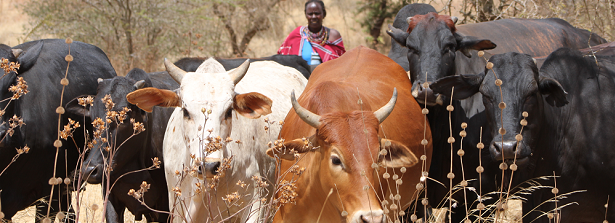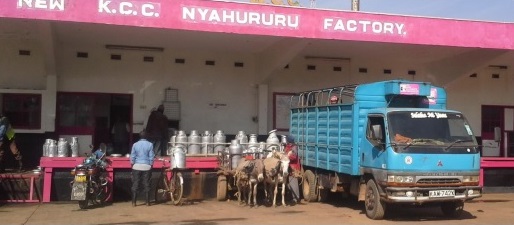Assessing and supporting Dairy Input & Advisory service Systems (ADIAS) in Ethiopia and Kenya

Duration: January 1, 2016 – December 31, 2018
Project information
Farmers in the East African highlands who focus on producing more milk for the urban market, become vulnerable to a whole new set of risks. This project “Assessing and supporting Dairy Input & Advisory service Systems (ADIAS)” in Ethiopia and Kenya assesses if and how providers of inputs and advisory services help them to deal with these.
Aim: This comparative study on dairy production systems in the Ethiopian and Kenyan highlands aims to generate a better understanding of how new configurations in dairy input and advisory service supply contribute to the innovations that embody the transition process to more market-oriented farming. Input and advisory service configurations for farming systems along a market orientation gradient will be studied, and focusing on feed supply and quality assurance mechanisms. The research aims to create impact by coupling these insights with ongoing actions to improve input and advisory service systems and enhance systemic changes towards more resilient and sustainable food systems. Insights on input and advisory service provisioning will contribute to building better capacities of input and service providers to support resilient dairy farming systems and will inform policy that enables the creation of a more supportive institutional context.
Objectives: By investigating the link between input & service support configurations, dairy farming, Triple-P resilience and adaptive capacity in the East African highlands, this research intends to achieve the following objectives:
- To explore how the current changes in the configuration of dairy input & service support systems affect the triple-P resilience of dairy farming systems at different degrees of market orientation in the Ethiopian and Kenyan highlands.
- To build capacity among service providers to support dairy farmers in enhancing triple-P resilience of their dairy farming system and hence contribute to sustainable intensification / market integration pathways for smallholder farmers.
- To inform dairy chain actors and policy makers on suitable interventions and incentives that support sustainable intensification, to positively impact triple-P resilience.
Method: The project methodology will comprise of both qualitative and quantitative approaches in order to answer the how and what questions of the study. The research design will therefore comprise of desk research and comparative case studies.
Countries: Ethiopia and Kenya.
Dutch policy goals: Sustainable food systems; and Urbanization and challenges for food and nutrition security.
Progress reports
Year 1: The main research question is: How do innovations in input & service supply affect the resilience of commercializing dairy farming in the East African highlands? In 2016 three study areas were selected in Ethiopia and Kenya using double proximity gradients, with 3 * 3 villages per study area. Research protocols were designed for interviews with farmers and key informants (input suppliers, service providers and milk buyers), and for focus group discussions with farmers, with subsequent start of data collection and data entry. Frequent meetings between project partners allowed for work plan adaptation due to partner insights and in order to deal with security issues.

